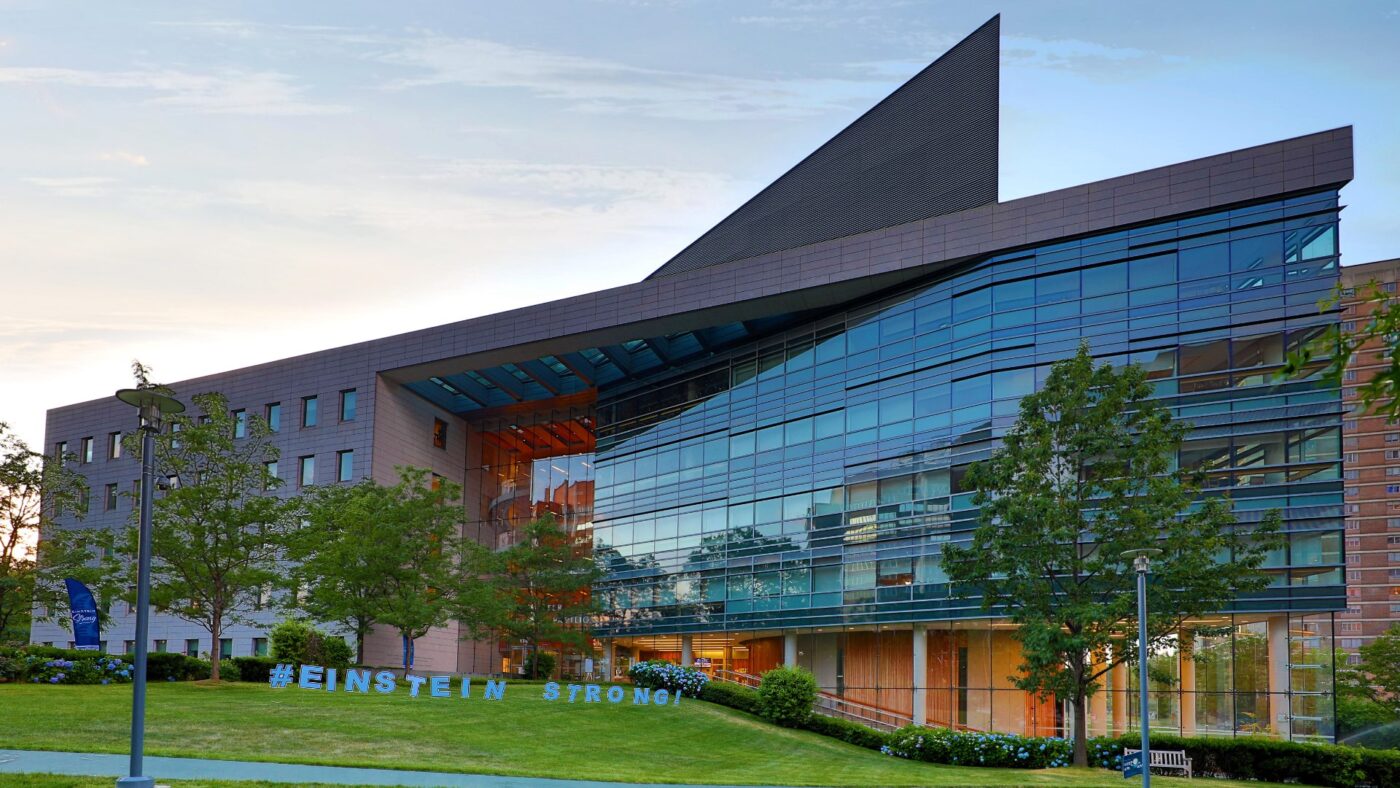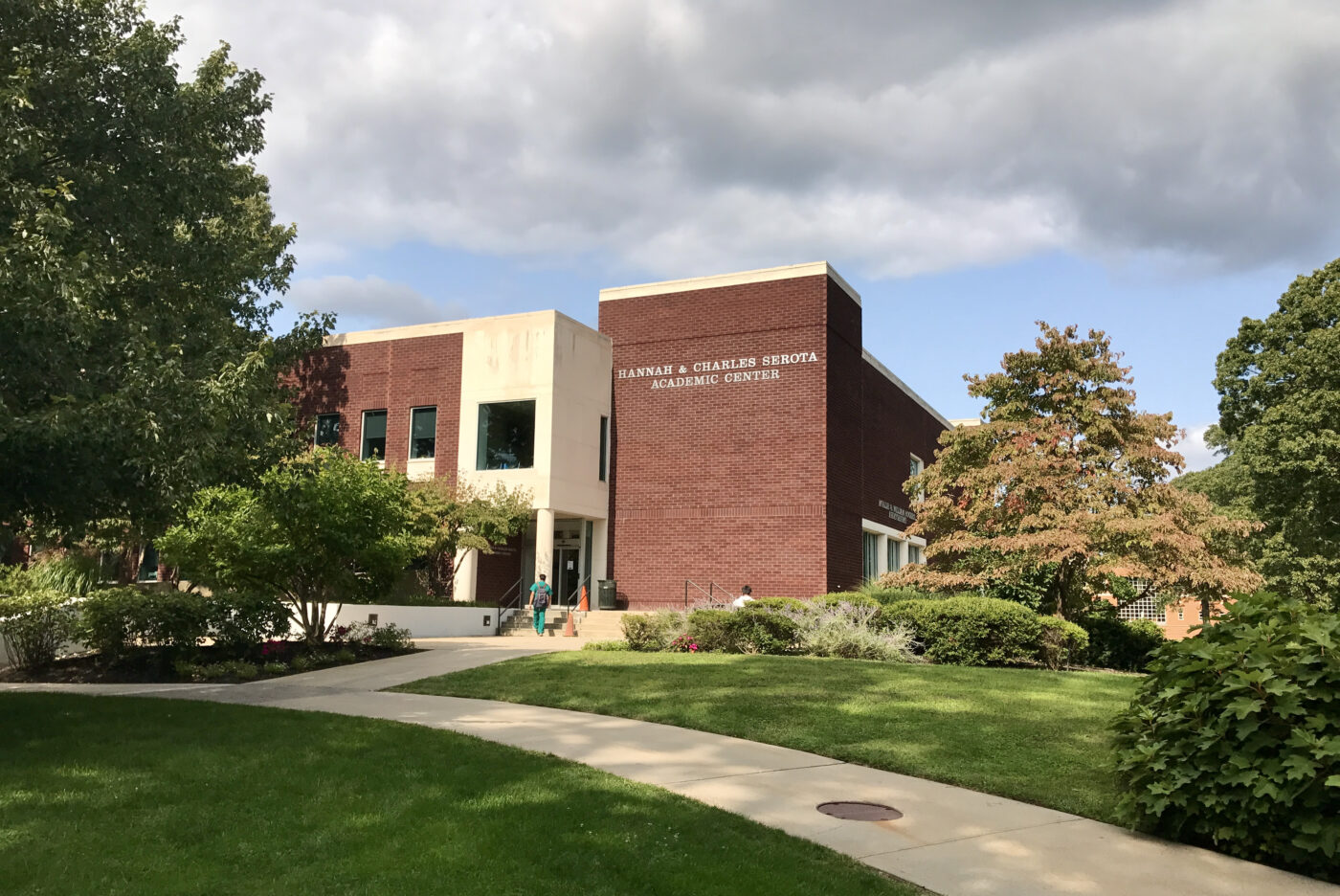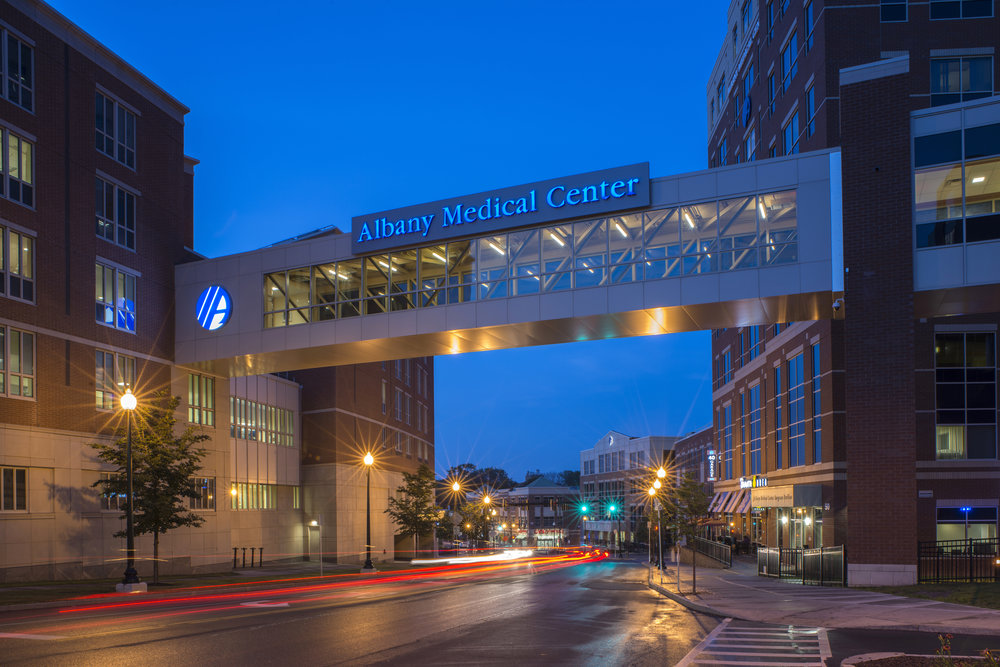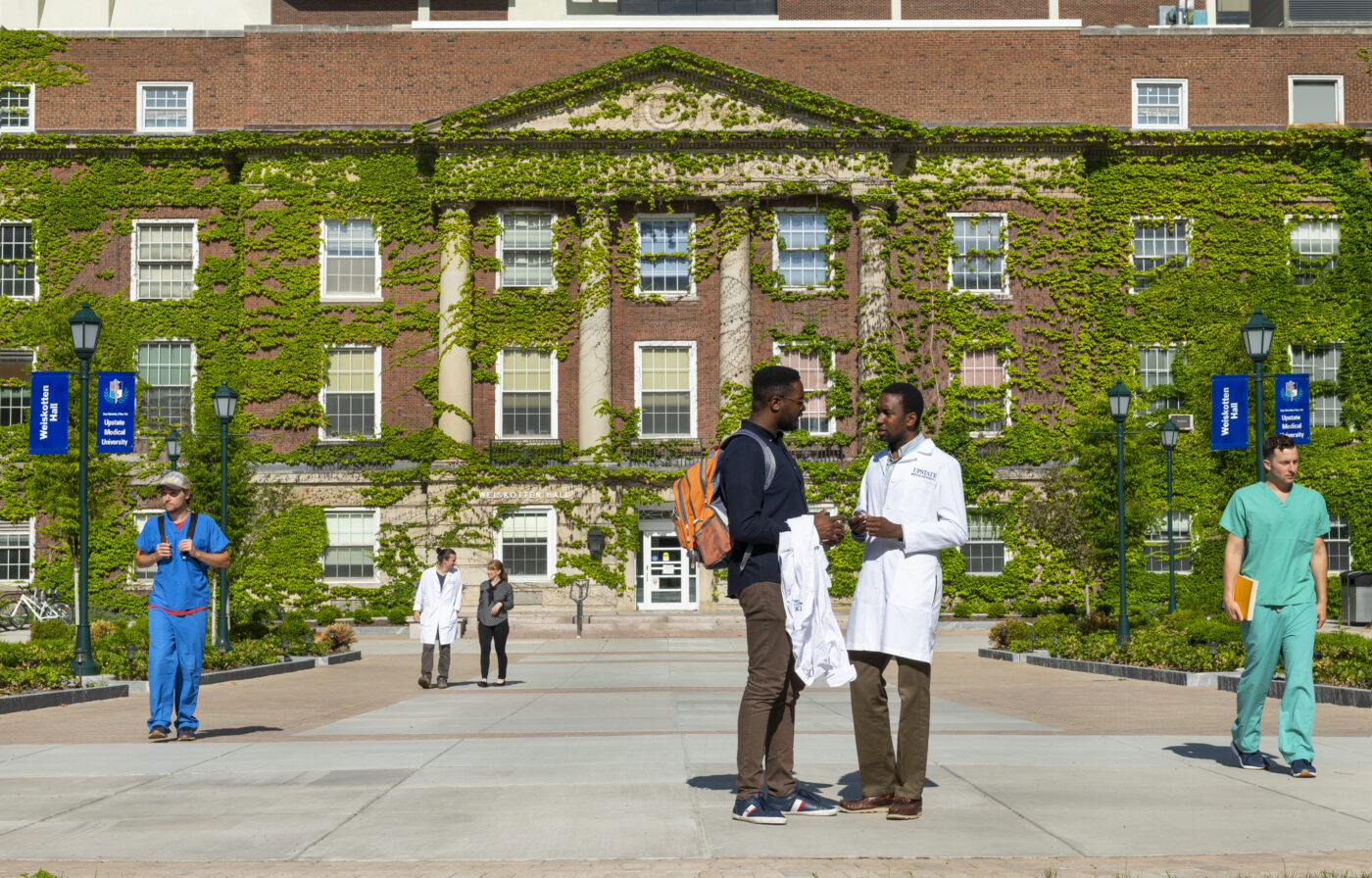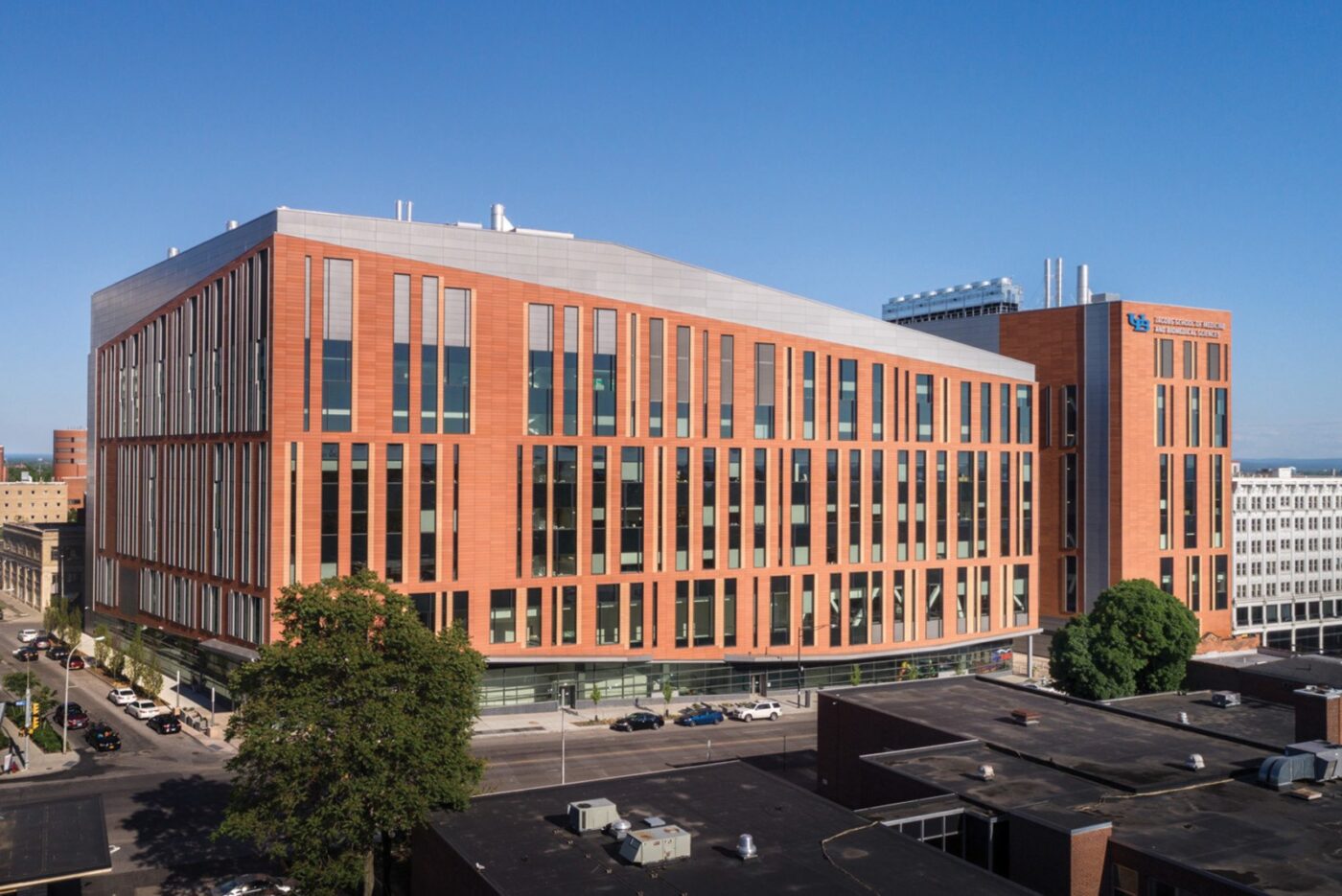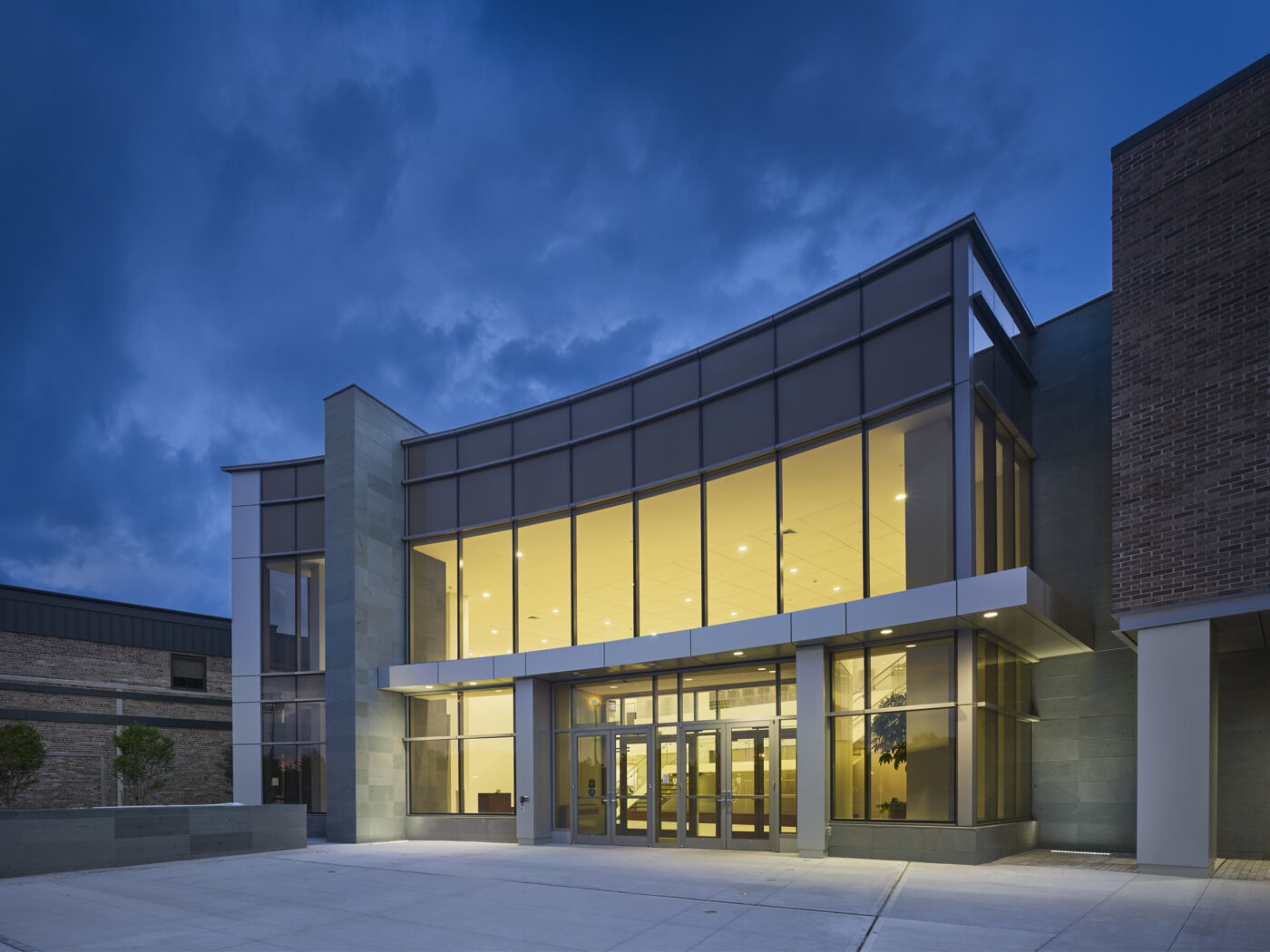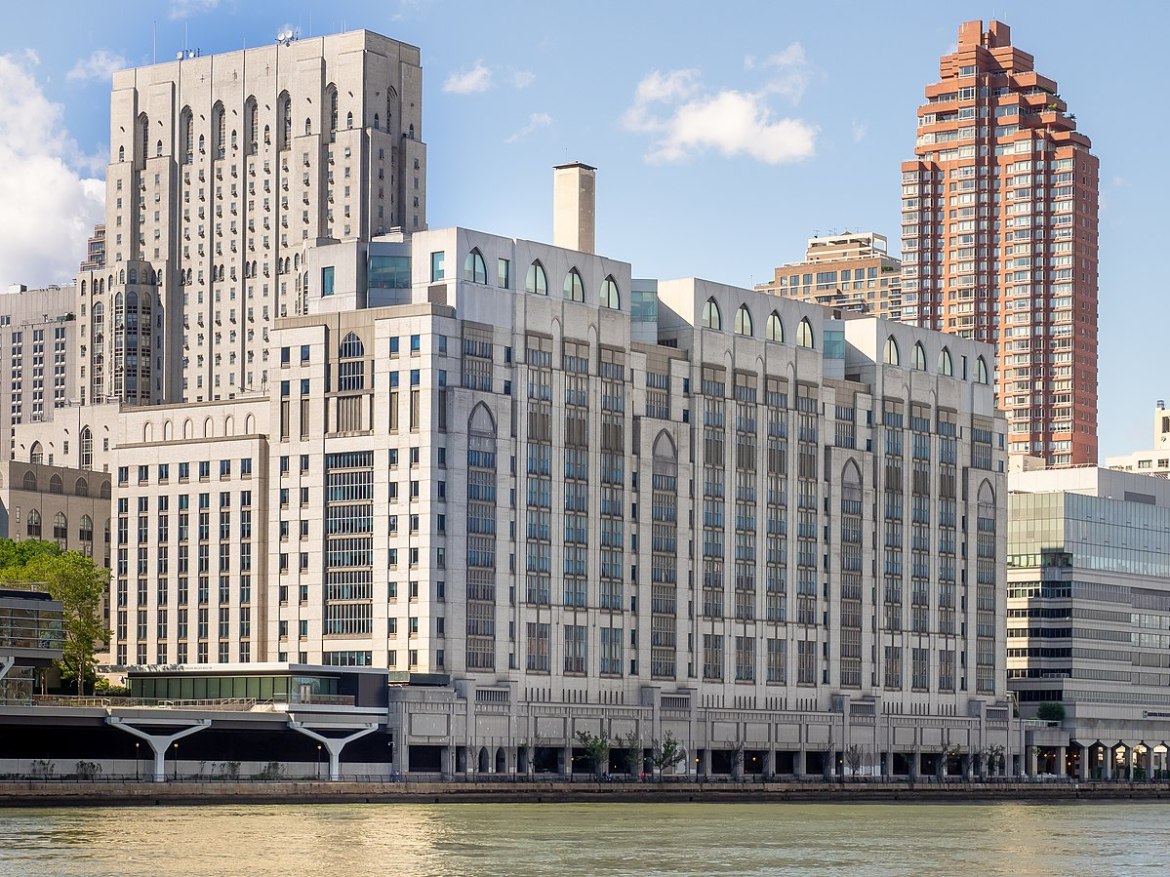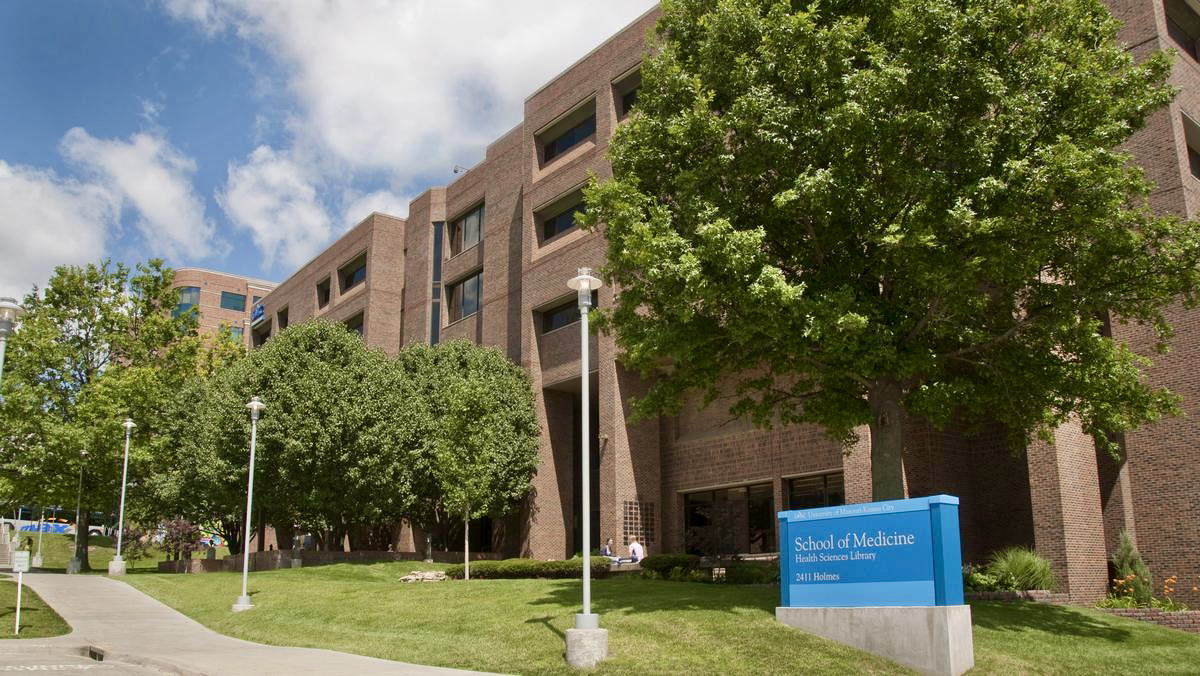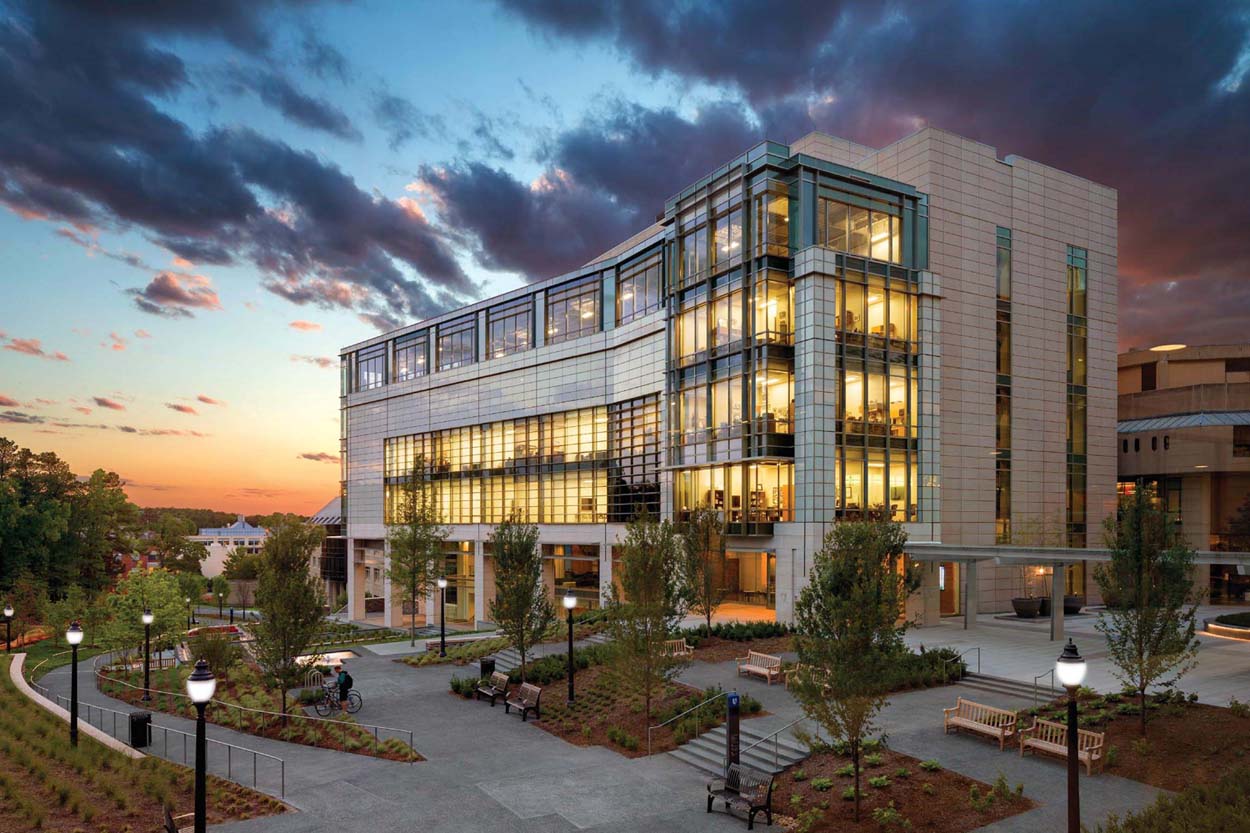Central Pennsylvania is known for its affordable cost of living, its picturesque natural beauty, and being home to one of the most distinguished medical schools in Pennsylvania. Living in this welcoming community is just a bonus for students who enroll in the medical school at Penn State Medical School in Hershey, PA.
The story of Penn State College of Medicine began with a sizable donation from the Milton Hershey Foundation of $50 million with instructions for them to build a top-notch medical school. Affectionately known as the “$50 million Phone Call”, these funds allowed ground to break in 1966 and the Pennsylvania State University College of Medicine opened its doors a year later in 1967.
Known for the accelerated 3-year MD program, Penn State College of Medicine ranks as one of the most popular medical schools in Pennsylvania, and one of the most difficult to matriculate.
Applying for medical schools can be a complicated endeavor and you might have a dozen questions about what it takes to get accepted to Penn State College of Medicine. You can never be too prepared.
This guide will help you navigate the complexities of the admissions requirements, process, and statistics so that you can be as prepared as possible going forward. Once you’ve read it, you’ll have a much better idea of what admissions will be looking for in candidates and how to increase your chances of acceptance.
Be an Informed Applicant
If you’ve felt called to become a physician, you’re clearly the type of person who desires to help other people and make a positive difference in the world. You’ve likely done the research and know the mountains you’ll have to climb to achieve your goal of becoming an MD, and you’ve decided you’re up for the challenge.
The first step on this incredible journey towards a very fulfilling life of bringing health to the world is getting accepted to a quality medical school, like Penn State College of Medicine.
Penn State is a competitive program to gain acceptance into, and it’s those candidates who prepare adequately and put the time into the application process who are much more likely to receive an acceptance letter. Being informed, prepared, and diligent goes a long, long way towards the outcome of your application.
Like all medical schools in Pennsylvania, Penn State Medical School has its own qualifications, requirements, and applications that must be in order before seeking admission. This process is designed both to ensure that you are the right fit for the Pennsylvania State University College of Medicine family and that Penn State is the right fit for you.
The purpose of our Medical School Guides is to offer potential candidates the best possible opportunity to be prepared for the application process and to increase the likelihood of acceptance to the school of your choice .
By the way, we offer these Medical School Guides for a variety of programs. If you are looking for a medical school in your general area, you may want to search “medical schools near me,” and then check to see if we have a guide available.
This guide is specifically for the Pennsylvania State University College of Medicine.
Topics covered in this guide include:
- Why Pennsylvania State University College of Medicine?
- Penn State College of Medicine Ranking
- Medical Programs at Penn State College of Medicine
- Facilities, Student Organizations, and More
- Selection Factors: What Penn State College of Medicine Looks for in an Applicant
- Admissions Requirements for Penn State College of Medicine
- Penn State College of Medicine Acceptance Rate & Admissions Statistics
- Penn State College of Medicine Tuition & Cost of Attendance
- Penn State College of Medicine Secondary Application: Essay Prompts, Sample Answers, and Advice
- Penn State College of Medicine Interview Process
- Medical School Admissions Consulting
- Voluntary Healthcare Internships Abroad
Personalized Help
When it comes to the application process, there is no greater help than having someone to work with you one-on-one every step of the way. We offer our one-to-one medical school admissions consulting which provides individualized assistance with every step of the application process. This includes help with completing your medical school application, advice on essays, interview prepping, and more.
Why the Pennsylvania State University College of Medicine
The Pennsylvania State University College of Medicine prides itself on providing a medical education that is focused on individual patients and systems. This education is brought to the students by professors who are continually praised for their knowledge, their contributions to science and the medical community, and their skills as being top-notch educators.
Penn State College of Medicine has been known as a forerunner in the race to produce medical professionals of the highest caliber who strive to put patients first. The school was the first in the nation to open a Department of Family and Community Medicine, as well as a Department of Humanities. It has also led the way in innovation and research throughout the years.
The MD Program offers students a variety of unique opportunities, such as the longitudinal humanities coursework, an accelerated medical program option, and a patient navigator program.
The highly popular accelerated medical program allows students to move through three years of medical school and into a specialty-focused residency program via a 3+ Accelerated Pathway program. This accelerated medical program moves students seamlessly from education to residency in an effective manner.
Offering a thorough education with diverse opportunities for hands-on experience, the Penn State Medical School has been and will continue to produce highly skilled medical professionals who know how to put both method and empathy to practice in serving the health needs of the community. If you’re looking for a medical program with the needs of every human being as the focus, Penn State College of Medicine is a very logical selection for you.
Penn State College of Medicine Ranking
US News & World Report states that Penn State College of Medicine ranked:
- #70 in Public Health
- #87 in Most Graduates Practicing in Rural Areas
- #116 in Most Graduates Practicing in Primary Care Fields
- #117 in Most Graduates in Medically Underserved Areas
Medical Programs at Penn State College of Medicine
There are several comprehensive and integrated MD programs available at Penn State Medical School, and it’s helpful for potential students to know what their options are and which direction they would like to take, should they matriculate. The following is a description of the programs available.
Hershey Four-Year MD Curriculum
The Penn State Hershey Curriculum path at Penn State Medical School is a learner-centric, fully integrated program designed to prepare students for an ever-evolving medical world. There are three phases to the curriculum that cover all aspects of what is needed to be successful as a medical professional in an integrated healthcare system.
Penn State College of Medicine’s Systems Navigation Curriculum (SYNC) is an interesting aspect of this program that was started in 2014. The concept is to create a marriage of sorts between the science of the healthcare system and a humanistic approach to caring for patients as a “Patient Navigator”.
Penn State offers a video on being a Patient Navigator on their website.
The following is a brief breakdown of the three phases of the program:
- Phase I – Foundations – all students at Penn State College of Medicine learn from both small-group problem-solving environments and directly from real patient cases. Lectures are also a supplemental part of the education experience.
- Phase II – Clinical Core – Students walk through seven essential clerkships.
- Phase III – Discovery & Residency Prep – Students take courses in Translating Health Systems Science to the Clinical Setting and Transition to Internship. They all also must participate and complete internships in a Humanities selective and elective.
All students will be required to meet Penn State Medical School’s List of Competencies before graduating with their MD.
Another major emphasis in this program is on the Humanities aspect. Penn State was the first Medical Program to open a Humanities Department, and it has continued to be an important part of the coursework and experiential learning opportunities.
Three-Year Accelerated Pathways MD Curriculum
Students who are part of this accelerated 3-year MD program will be studying at the Central Campus at Penn State in Hershey, PA. The purpose of this pathway is to train students in the humanistic perspective of medicine, focusing on a balance between science-based medical facts and genuine, high-quality patient care.
This is a well-rounded approach to medical studies packaged tightly into three years, followed by insertion into a residency based on specialty interests. Graduates of this program will essentially have the same degree and qualifications as those in the four-year program, but it is at a faster pace and leads into the Pathway of their choosing. It is a smooth, streamlined approach to maneuvering from education to residency.
Pennsylvania State University College of Medicine is an active member of the national Consortium of Accelerated Medical Pathway Programs (CAMPP).
One of the key benefits to this route is lessening the financial burden of medical school and thus making it more accessible to a wider variety of qualified students. By reducing the amount of time spent in the program, young physicians can get into the workplace sooner and begin putting their education to good use.
The Accelerated Pathway programs are designed to move students directly into their field of interest. Whether you’re interested in the Penn State Orthopedics Pathway or the Penn State Family Medicine Pathway, you’ll be able to dive right into the appropriate program.
The following is a list of Pathways available:
- Diagnostic Radiology 3+ Accelerated Pathway
- Emergency Medicine 3+3 Accelerated MD Pathway
- Family Medicine 3+3 Accelerated MD Pathway
- Internal Medicine 3+3 Accelerated MD pathway
- Neurology 3+4 Accelerated MD Pathway
- Orthopedics 3+5 Accelerated MD Pathway
- Pathology 3+ Accelerated Pathway
- Psychiatry 3+ Accelerated Pathway
- Urology 3+ Accelerated Pathway
- Clinician Educator Pathway
Penn State Medical School provides a detailed description of all of their Accelerate Pathway Program options.
All the Accelerate Pathways will include a great deal of one-to-one mentorship. This is one of Penn State Medical School’s emphasis in programming because it is such an effective method in passing on a humanistic approach to care. Curriculum studies can teach the science behind the medicine, but caring for patients as human beings is best taught through personal mentorship by experienced faculty.
University Park Curriculum
Based in State College, PA, this four-year MD program is complete in every aspect. It is carefully balanced between the study of science and clinical experience so that students are prepared to adapt, grow, and thrive in a medical world that is constantly changing.
This program revolves around the concept of immersing students into situations where they are working with patients from the very beginning. We all learn best when we can experience lessons in a hands-on environment so Penn State medical students, under the watchful eye of faculty and with their peers by their side, are brought face-to-face with real patients and their medical conditions.
When it comes to Penn State Family Medicine studies, it’s vital that students not only learn to diagnose and treat their future patients, but that they conceptualize what it means to practice humanistic care in a practical way.
The University Park Curriculum was developed to marry science with the humanity of doctoring; respect and active curiosity being the cornerstones of the program. Faculty mentorship and interactions with real patients are the tried-and-true tools used to achieve the vision of the University Park program.
Penn State Medical School partners with Mount Nittany Health to provide students with the most thorough education possible in this program.
MD/PhD Program
In this particularly high-level MD/PhD program, students are trained to take on specialties focused in such amazing, intense graduate fields as biomedical sciences, anthropology, engineering sciences and mechanics, bioinformatics and genomics, integrated biosciences, and neuroscience.
Research is a primary focus at Penn State College of Medicine, and this program prepares bright minds for thrilling careers as biomedical researchers and clinicians, paving the way for game-changing medical breakthroughs that could truly transform and save lives.
Physician’s Assistant (PA) Program
The Penn State PA Program is one of the best in the state, graduating students every year from the 24-month program, with full assurance of their readiness to enter and succeed in their chosen careers.
Not only are PA students given the knowledge to care for patients on a physical level, but they are trained in providing compassionate, whole-person care to each patient they encounter. Faculty imparts their wisdom and experience in using critical thinking skills to conquer medical puzzles.
Psychiatry and Behavioral Health Program
The Penn State Medical School of Psychiatry and Behavioral Health strives to develop practitioners who are knowledgeable about the science behind the human brain, the dynamics of family life, and the underlying challenges of treating the whole person and not just what appears to be the issue at first glance.
This is a field of medicine that requires a great deal of flexibility, with new research being conducted every day to uncover the fascinating mysteries of the mind. This is why clinical studies are so incredibly important and why the Penn State Psychiatry and Behavioral Health Department puts such an emphasis on providing students the opportunity to observe and assist with patients early in their training.
Facilities, Student Organizations, and More
Facilities
Here is a list of some of the facilities at Penn State Medical School:
- University Park where the 4-year MD program is based
- State College Borough
- Harrell Health Sciences Library: Research and Learning Commons
- Penn State Biomedical Research Building
- Penn State Heart & Vascular Institute
- Penn State Health Children’s Hospital with the only Level 1 Trauma unit in the area
- Penn State Health Milton S. Hershey Medical Center adjacent to the main Penn State campus
- Penn State Health Otolaryngology
- Penn State Health Dermatology
- Penn State Health Pharmacy
- Penn State Health Community Vaccination Site
- Penn State Pro Wellness
- First Discoveries at Bright Horizons Daycare
- University Conference Center
- University Fitness Center
Expansion and Renovation of Comparative Medicine Facilities
In September of 2022, trustees granted permission for the school of medicine to move forward with a $37.3 million renovation project on the Penn State College of Medicine Comparative Medicine Facilities. These facilities are where the brightest young minds of this generation are researching cures for some of the most pressing issues we face today, such as cancer, infectious disease, and aging.
The renovation will include adding over 18,000 square feet of space, a modernized imagining center, and a germ-free, clean facility for research.
Student Organizations
- Alpha Omega Alpha Honor Medical Society (AOA)
- American Medical Women’s Association (AMWA)
- Asian Pacific American Medical Student Association (APAMSA)
- BRIDGE mentorship program
- Disability Advocacy Awareness Group (DAAG)
- Family Medicine Interest Group (FMIG)
- Internal Medicine Interest Group (IMIG)
- Jewish Union of Medical Professionals (JUMP)
- Latino Medical Student Association (LMSA)
- Meds-Peds Interest Group
- Military Medicine Interest Group (MMIG)
- Multicultural Awareness Club (MAC)
- Muslim Student Association (MSA)
- Ophthalmology Interest Group
- Pathology Interest Group
- Physical Medicine and Rehabilitation Interest Group
- PULSE
- Sexual and Gender Minority Alliance
- Student Interest Group in Neurology (SIGN)
- Student National Medical Association (SNMA)
- Student Pediatric Society
- Student Veterans of America (SVA)
BRIDGE Mentorship
One of the most unique and beneficial group opportunities at Penn State is the PA to MD Bridge Program that pairs up medical students with undergraduate students from other local schools. The MD and PA students help these undergraduates through the medical school application process.
Lion’s Pantry
Several days a month, basic groceries are provided to students who live on campus and who are experiencing a food shortage. This is called the Lion’s Pantry and is located at 922 West Governor Road. Students must bring their Student ID’s.
Selection Factors: What Penn State College of Medicine Looks for in an Applicant
Admittance to Penn State College of Medicine is highly competitive, so it’s important you be as prepared as possible prior to initiating the process. Penn State has a strict application process that must be followed to be considered.
The admissions committee will be especially watchful for students who stand out from the crowds of applicants with records of diverse and broad experiences, a commitment to service opportunities, a clear diligence in following procedural instructions, and a strong background of achievement in their undergraduate work.
Displaying the qualities of being a strong leader and the ability to work with others as a team are a plus.
While the committee will comb through each application with an open mind, knowing that students may be seeking admittance from a wide range of backgrounds and pathways, they will be looking for strong MCAT scores demonstrating proficiency, as well as undergraduate or graduate achievements in science and liberal arts.
At the end of the day, the committee loves to see candidates apply who catch their attention because they have a unique voice and story. Diversity is important to Penn State admissions. They will be looking at your answers on the AMCAS and Penn State Secondary Application to really get a good grasp on who you are and whether you’ll be a good fit for the Penn State family.
Here are some of the elements of your application the committee will be paying attention to:
- Residency – Most Penn State College of Medicine Students Reside in PA
- Citizenship – Must be U.S. Citizen, U.S. Permanent Resident or Have Formal DACA Status
- MCAT Scores – Important but Not the Only Determining Factor
- GPA – Indicator of How You’re Handling Coursework
- Community Service – Character Building
- Clinical Experience – The More the Better
- Personal Character – Committee Wants to Know You as a Whole Person
- Letters of Recommendation – How Others Perceive You
Admissions Requirements for Penn State College of Medicine
All qualified candidates for Penn State Medical School must show that they successfully completed three years of undergraduate study with a baccalaureate degree from an accredited college or university in the United States or Canada.
It is necessary that candidates prove to the committee, via completed coursework or comparable experience, that they are competent in the following areas:
- Biological and Biochemical Foundations of Living Systems
- Chemical and Physical Foundations of Biological Systems
- Psychological, Social, and Biological Foundations of Biological Systems
- Critical Analysis and Reasoning Skills
- Scientific Inquiry and Thinking & Reasoning
Minimum GPA and MCAT Requirements for Penn State College of Medicine
There is no minimum MCAT requirement, but the median MCAT score for applicants is 512.
There is no minimum GPA requirement, but the median GPA for applicants is 3.82.
Volunteer Service and Clinical Experience
While there are no minimum requirements at Penn State College of Medicine regarding volunteer and clinical experience, there is no doubt that these aspects of your background will make you a more desirable candidate for acceptance.
The following are some examples of how you might show your diverse experience to the admission committee:
- Leadership – Any opportunity to show yourself as a strong leader is a plus. This could come from leadership positions on campus in the student body, in club organizations and at the workplace.
- Clinical Experience – Any hours spent working with patients in a clinical or volunteer setting should be listed.
- Research – Research is a big focus at Penn State Medical School, so any experience in medical research is a benefit to you.
- Volunteer and Community Service – Share any unique opportunities you’ve had.
- Extracurricular Activities – List any extracurricular activities as they show your diverse background and help the committee get to know you as a whole person.
Penn State College of Medicine Letters of Recommendation
Letters of recommendation through AMCAS are required. There must be a minimum of 4 letters and a maximum of 6 letters submitted. All applicants are strongly encouraged to submit a pre-health committee letter when at all possible.
Personal letters of recommendation should only be written by individuals who have a deep knowledge of the applicant and have experienced the applicant in a variety of settings and atmospheres.
Required & Recommended Coursework at Penn State College of Medicine
It is recommended that candidates will have completed the following coursework:
- Behavioral Sciences (3 Credits)
- Biochemistry (4 Credits)
- Biology with a Lab (4 Credits)
- Calculus (3 Credits)
- College English (3 Credits)
- College Mathematics (3 Credits)
- Genetics (3 Credits)
- Humanities (3 Credits)
- Inorganic Chemistry with Lab (4 Credits )
- Organic Chemistry with Lab (4 Credits)
- Physics with Lab (4 Credits)
- Psychology (3 Credits)
- Social Sciences (3 Credits)
Does Penn State College of Medicine Require the CASPer Exam?
Penn State College of Medicine does require the Situational Judgement Testing under the CASPer Exam. This is an online, video-based test that will highlight a candidate’s interpersonal skills in a manner that compliments the information gathered by the AMCAS and Secondary Applications.
Candidates will be instructed as to when and how to complete this exam.
Penn State College of Medicine Acceptance Rate & Admissions Statistics
The Penn State Medical School acceptance rate indicates the school is very selective when approving candidates. Out of 12,882 verified applications, 151 were enrolled. That’s an acceptance rate of approximately 1.17%*. This is competitive for medical schools in Pennsylvania.
The chances of getting accepted as an in-state student are higher than out-of-state. Out of 1292 in-state applications, 80 were accepted, which is a 6.19% acceptance rate. On the other hand, out of 11,366 out=of-state applications, 71 were accepted, which is only a 0.62% acceptance rate.
Out of 224 international applications, 0 were accepted.
*The acceptance rate is based on the percentage of applicants who enroll only. There are other factors that affect rates.
Penn State College of Medicine Class Profile
Below is some key information regarding the upcoming class profile and the challenges of matriculating to Penn State Medical School.
Penn State Medical School 2023 Class Profile
The following are some statistics regarding the class of 2023:
- Total Enrollment – 151 new students
- Men 55 – Women 96
- In-state Students – 80
- Out-of-State Students – 71
- Median MCAT – 512
- Median GPA – 3.82
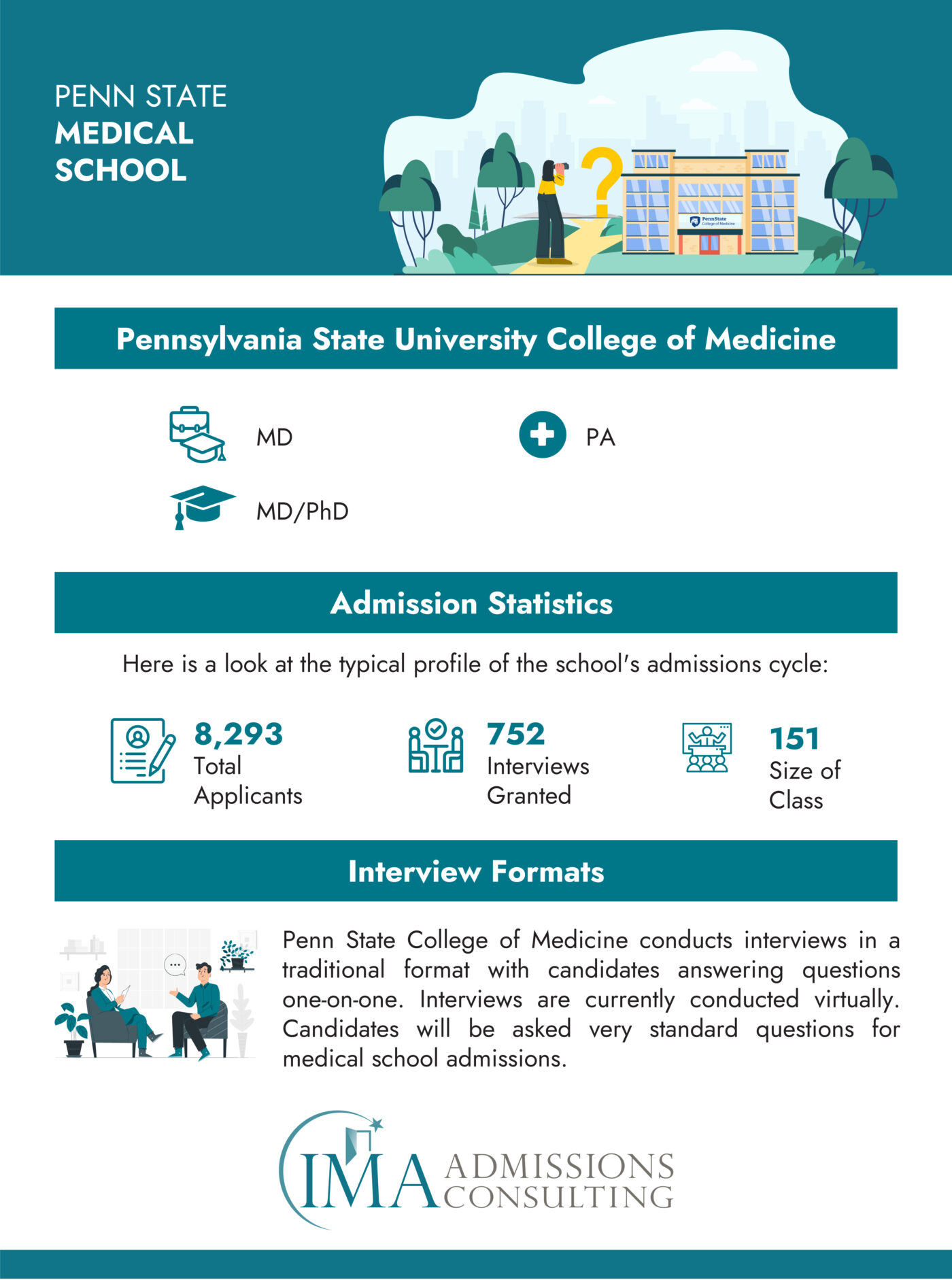
Penn State College of Medicine Tuition & Cost of Attendance
These tuition and fees are based on the Penn State College of Medicine 2022-2023 academic year. Fees are subject to change. Students are required to maintain medical insurance that is purchased directly through Penn State.
Year 1:
- $55,504 Tuition and Fees
- $2,550 Books and Supplies
- $23,329 Room and Board, Travel, and Personal Expenses
- $3,664 Health Insurance
- $72 Loan Fees
$81,503 Total for In-state Students / $81,503 Total for Out-of-state Students
Year 2:
- $55,504 Tuition and Fees
- $1,592 Books and Supplies
- $23,020 Room and Board, Travel, and Personal Expenses
- $3,355 Health Insurance
- $72 Loan Fees
$81,146 Total for In-State Students / $81,146 Total for Out-of-State Students
Year 3:
- $55,504 Tuition and Fees
- $1,110 Books and Supplies
- $23,020 Room and Board, Travel, and Personal Expenses
- $3,355 Health Insurance
- $72 Loan Fees
$81,579 Total for In-State Students / $81,579 Total for Out-of-State Students
Year 4:
- $55,504 Tuition and Fees
- $1,110 Books and Supplies
- $23,020 Room and Board, Travel, and Personal Expenses
- $3,355 Health Insurance
- $72 Loan Fees
$80,004 Total for In-State Students / $80,004 Total for Out-of-State Students
Some 91% of Penn State medical students are receiving financial aid.
The average student ends up with a total medical school debt of $192,585.
You may want to consider that the accelerated medical program at Penn State College of Medicine will help save on tuition costs in that it cuts out a year.
Being knowledgeable can help navigate this complicated system. For more information on the costs of attending medical schools in the United States, visit our Medical School Tuition Database where we offer detailed guidance and helpful information.
AMCAS Primary Application & Penn State Medical School Secondary Application
There are two applications that are necessary for you to complete for consideration for the Penn State College of Medicine program. The first is the standard American Medical College Application Service (AMCAS) that most medical schools do require.
The AMCAS is going to contain basic information about you, your school transcripts, your activities in and out of school, and your personal statement. You will be listing all medical schools for which you plan to apply, and AMCAS will forward this primary application to those schools you have indicated.
When Penn State Medical School receives your primary application from AMCAS, they will review and verify that the application is complete and that, so far, all qualifications have been met before they invite you to complete the secondary application. Each medical school has their own secondary application and this is where you’ll be able to spend more time showing the admissions committee who you are and what you’re trying to achieve.
The fee for completing the secondary application is $90. There is an option for a fee waiver according to need.
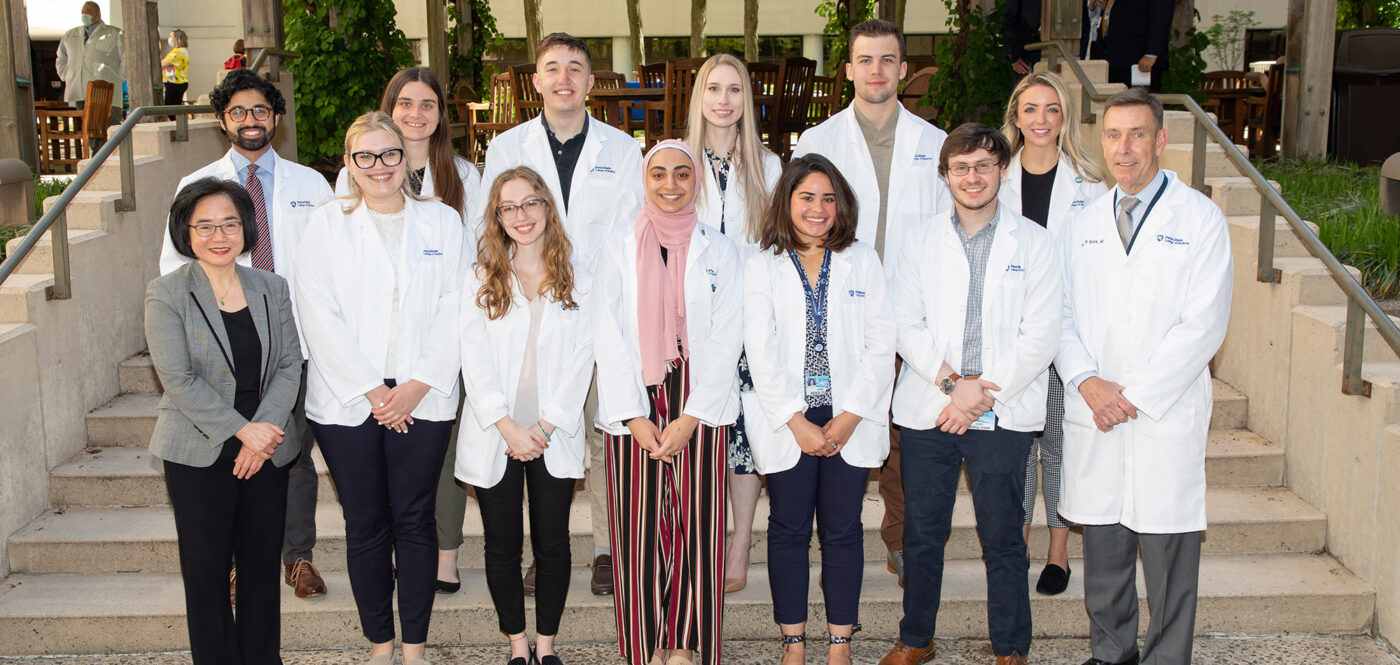
Penn State College of Medicine Secondary Application: Essay Prompts, Sample Answers, and Advice
Below are the Penn State Medical School’s secondary essay questions for the 2022-2023 application cycle.
Essay #1
If not currently enrolled in a full-time academic program, please summate your activities from the time of graduation from your baccalaureate program through the time of this application, as well as your plans between now and your matriculation to medical school. (Max 75 words)
As is commonly seen in medical school applications, Penn State’s admissions committee wants to see how you’ve been putting your time to use since graduation. This speaks to your sense of ambition, dedication to growth, and your level of motivation.
Essay #2
Is there a unique aspect of your application that should be considered by the admissions committee? (Max 75 words)
Don’t allow this essay prompt to stump you. Take some time to look over your application, formulate a list of aspects of your application that speak to your individuality, and consider if any of your activities, clinical experiences, volunteer work, etc. would indicate to the Selection Committee that you are going to be an exemplary physician.
Essay #3
Explain why you decided to apply to the Penn State College of Medicine (Max 75 words)
Before answering this question, you’ll want to take some time to look over Penn State College of Medicine’s Mission Statement. Once you’ve spent some time mulling over these foundational pillars of Penn State Medical School, make a list of your reasons for wanting to apply. Which of these reasons is most important to you and also aligns with the school’s values and vision? This is your topic.
Essay #4
Write a short paragraph describing a significant experience you have had working in a team setting. (Max 250 words)
When selecting an experience to focus on, remember you are not constrained to one relating to a medical team. This could be an experience working as a team in a voluntary service project, a community event, a sports team, etc. Be honest about what you gleaned from this positive experience.
Sample Answer:
In 2018, I joined my church’s youth group on a trip to build homes in Haiti. Leaving the comforts of home and joining with the team of local volunteers filled me with apprehension, but I was excited to be a part of something special that would make a real difference to some of the most marginalized and poverty-stricken communities in the world.
Once boots hit the ground, all fear left to make room for the physical exhaustion of a body not accustomed to building houses for 8-10 hours a day. My sore muscles each morning, nor my inability to sleep with the sounds of my teammates snoring all around me, took not an ounce away from the joy that it was to see those simple buildings take shape. We learned quickly the importance of teamwork, as each person took responsibility of their job, just like each part of the body works together for the benefit of the whole.
The most precious moment of the trip came when we put the finishing nails in our last project and, looking into each other’s eyes, burst into exclamations of utter joy and exaltation, embracing one another with a greater sense of camaraderie than I’d ever experienced before. Working as a team to accomplish something truly life-altering permanently changed me, and I knew at that moment that I’d want to spend the rest of my life looking for opportunities to serve alongside teams like this one, serving those in need.
Essay #5
Write a short statement describing how you envision using your medical education to advance care for under-represented or marginalized populations. (Max 250 words)
This is a wonderful prompt with the opportunity to be creative. Take some time to create a vision for a few ways you can accomplish this goal either as a medical student or as a young physician. The admissions committee will be reading to see if selecting you to matriculate is going to have a ripple effect of good throughout the world. That is always the goal.
Be sure to share how your education at Penn State College of Medicine will help shape the opportunities you have to practice humanistic care and serve the marginalized communities of the world on a greater level.
Penn State College of Medicine Interview Process
At Penn State Medical School, the interview is an extremely important step to gaining acceptance. These interviews may be conducted virtually. Penn State shares information on the interview process and timeline .
Preparing for an interview can be stressful. Many students find it helpful to receive personalized coaching and even a mock interview through our medical school admissions consulting services.
Medical School Admissions Consulting
Our primary mission here at International Medical Aid is to make ourselves available to help the next generation of medical students find their way into the top medical schools in the country. There’s no doubt that applying for medical programs can be complex and challenging, but we are always here to help.
One of the best ways to prepare for the application process is to work with one of our admission consultants. Their job is to help you through the application process, including providing tips and advice on essay writing, preparing you for your interview, and making sure your requirements are all in order.
Take a moment to schedule a free consultation with one of our experts here.
Voluntary Healthcare Internships Abroad
For students interested in the valuable opportunity to shadow physicians, spend time with real patients in a hands-on setting, experience the environment of working in a hospital or clinic, and soaking in a vast amount of knowledge, IMA’s voluntary healthcare internships abroad program is a fantastic choice.
Our pre-med shadowing study abroad program was designed to give pre-medical and gap year students real-life clinical experience, learning to approach medical care with a humanistic approach and practicing important communication skills amongst the active medical community.
Please take a few minutes to explore the benefits of our program and reach out if you have any questions.
Good Luck!
As you begin the journey of applying to Penn State College of Medicine, we wish you the best of luck and hope that this guide has shed some light on why Penn State is such an incredible school, how to go about applying, and what to do to give yourself the best possible outcome.
If you’d like some more personal one-to-one guidance, consider our medical school admissions consulting program. This time with a professional can be fantastic for building confidence in your interview skills, making sure Penn State Medical School is the right place for you, and reminding you of the little details in the application that make all the difference.
Whether you knew from an early age that you wanted to attend medical school or searched for medical schools near me, you have probably discovered many wonderful options. Take a few moments to explore some of our other medical school guides:
- CUNY School of Medicine
- SUNY Downstate Medical School
- NYIT College of Osteopathic Medicine
- NYU Long Island School of Medicine
- TOURO College of Osteopathic Medicine
- Albany Medical College
- Norton College of Medicine at Upstate Medical University
- Jacobs School of Medicine at the University at Buffalo
- Hofstra Zucker School of Medicine
- Weill Medical College of Cornell University
- University of Rochester Medical School
- Icahn School of Medicine at Mount Sinai
- Renaissance School of Medicine at Stony Brook University
- Albert Einstein College of Medicine
- Ohio University Heritage College of Osteopathic Medicine
- Northeast Ohio Medical University (NEOMED)
- University of Cincinnati College of Medicine
- University of Toledo College of Medicine
- Wright State University Boonshoft School of Medicine
- Ohio State University College of Medicine
- Rowan University School of Osteopathic Medicine
- Hackensack Meridian School of Medicine (HMSOM)
- Rutgers New Jersey Medical School (NJMS)
- Rutgers Robert Wood Johnson Medical School
- Cooper Medical School of Rowan University (CMSRU)
- A.T. Still University Kirksville College of Osteopathic Medicine
- Saint Louis University School of Medicine
- University of Missouri Medical School
- Kansas City University (KCU)
- UMKC School of Medicine
- New York Medical College
- University of Pittsburgh School of Medicine
- University of Wisconsin Medical School
- VCU School of Medicine
- University of Maryland School of Medicine
- Case Western Medical School
- University of North Carolina Medical School
- University of Florida Medical School
- Emory University School of Medicine
- Boston University College of Medicine
- California University of Science and Medicine
- UC San Diego Medical School
- California Northstate University College of Medicine
- Touro University of California
- CHSU College of Osteopathic Medicine
- UC Davis School of Medicine
- Harvard Medical School
- UC Riverside School of Medicine
- USC Keck School of Medicine
- UT Southwestern Medical School
- Long School of Medicine at UT Health San Antonio
- University of the Incarnate Word School of Osteopathic Medicine
- UT Austin’s Dell Medical School
- UTMB School of Medicine
- McGovern Medical School at UT Health
- Johns Hopkins School of Medicine
- McGovern Medical School at UT Health
- The University of Texas Rio Grande Valley School of Medicine
- UNT Texas College of Osteopathic Medicine
- University of Houston College of Medicine
- Texas A&M College of Medicine
- Johns Hopkins Medical School
- Baylor College of Medicine
- George Washington University School of Medicine
- Vanderbilt University School of Medicine
- St. George’s University School of Medicine
- Lake Erie College of Osteopathic Medicine (in Pennsylvania)
- Sidney Kimmel Medical College at Thomas Jefferson University
- Wake Forest University School of Medicine
- Western University of Health Sciences (in California)
- Drexel University College of Medicine
- Stritch School of Medicine at Loyola University Chicago
- Georgetown University School of Medicine
- Yale School of Medicine
- Perelman School of Medicine
- UCLA Medical School
- NYU Medical School
- Washington University School of Medicine
- Brown Medical School
Feel free to contact us if you have questions about the application process or our medical guides.



